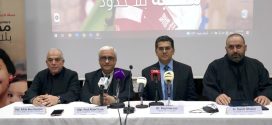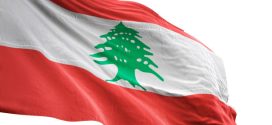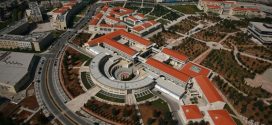Antelias, May 24, 2005
The media observer relevant to the World Forum of Professionals in the Secular and Religious Media – Lebanon (UCIP Liban) condemned the acts which are still pursuing the media freedoms in Lebanon regarding of the withdrawal of Syrian forces and the nation’s regain of its free decision. He also criticized the censorship on the television program “Bass Mat Watan” (when a nation died), and the threats addressed to the colleague Nawal Nassr. Moreover, he warned about the danger of continuing the action in the item 68 of the elections law, and asked the minister of Information to have a clear concept in the domain of mass media.
The statement of the Forum included the following:
The Syrian withdrawal and Lebanon’s regain of its free decision were not translated in the cadre of media freedoms. The “MTV” channel remained close, the constitution of “national media Council” remained as it is, the threats and the red lines continued to define the action of media institutions. These acts seemed clear in the following indicators:
1 – The critics addressed from multi – sources to the mass media which refused the current elections law, and were accused of confessionalism and extremism in order to prevent them from giving their remarks and expressing the opinion of the majority of citizens in different orientations.
2 – The critics and warnings addressed to the television program “Bass Mat Watan” which obliged the Lebanese Broadcasting Corporation (LBC) to cut large parts of the last episode, as it used to happen in the period of the Syrian custody. The politicians and figures, by rejecting the critics, are harming the democratic action. Critic programs attract officials to the mistakes in order to correct them; they attract the citizens to bad acts in the political, social and vital fields, and collaborate in enhancing and activating their role. The Forum fears that these methods are presented to stop such programs.
3 – The threats addressed to the reporter Nawal Nassr because of her writings which did not satisfy some parties, as if the reporter’s role is to complement and stay away from what disturbs the figures and politicians. These threats are definitely refused because they attack the noble traditions of journalism in Lebanon, and constitute a threat to every reporter and person of free opinion. The Lebanese authority, the civil community and the mass media are invited to face any trial which aims to frighten the free and audacious writings.
4 – The Covenant of Media Honor, patronized by the minister of Information and Tourism, Dr. Charles Rizk, is still at the base of aspirations and general slogans hard to be practically applied. The mass media problem in Lebanon is based on the partnership which occurred when distributing the licenses, on the obscure and dubious laws such as the item 68 of the elections law, and on the absence of an action mechanism which activates the national media Council and makes it an institution above little political accounts. The mass media role is primordial in the society at any time and not just during the electoral period when the authority and penetrating sides seek to mold their contents.
5 – The Lebanese mass media was known in the fields of freedom and democracy. It constitutes a unique and superior school in media practicing, and it is primordial in the national enhancement and just and proper participation in the elections operation, and in defending human rights, mainly the public freedoms.
Translated by: Joyce Tary


 الاتحاد الكاثوليكي العالمي للصحافة- لبنان اوسيب – لبنان
الاتحاد الكاثوليكي العالمي للصحافة- لبنان اوسيب – لبنان




